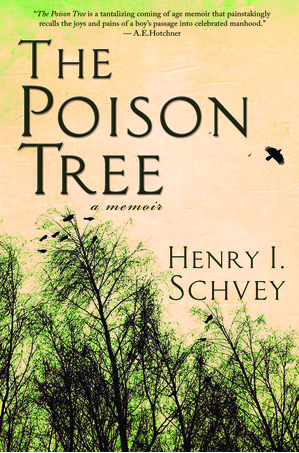Share the post "Frederick Fausz Signs His Book!"
by Diana Davis
Who would drive downtown on a 103 degree night to hear a historian speak about a French immigrant sailing to America in 1755? I imagined the answer to that question would be “about three” and felt sympathy for Dr. J. Frederick Fausz, author of Founding St. Louis: First City of the New West, when I walked into Left Bank Books ten minutes prior to the discussion and found only two other people present. I sat down in a chair in the first row to indicate rapt interest. My sympathy was wasted, however, as a steady stream of attendees continued to arrive, nicely filling the gallery by 7:00 p.m.
Fausz, a history professor at University of Missouri-St. Louis (UMSL) specializing in Indian-European relations in colonial America, delivered a “red-hot” lecture that did not disappoint. He presented the story of St. Louis’ French founders with great enthusiasm, sparking a lively question and answer period. He proudly displayed a selection of Indian artifacts, including a painting from his personal collection of the Osage Warrior who visited Thomas Jefferson in 1806. Attendees were enthralled, asking so many additional questions during the book signing that the store stayed open an extra half hour.
Fausz is well known in the field for his extensive knowledge, academic excellence, stimulating lectures, and numerous publications. He earned a Ph.D. from the College of William and Mary, with Phi Beta Kappa honors, and completed his dissertation as a research fellow at the Newberry Library, Chicago. He was selected as the first dean of the Pierre Laclede Honor’s College at UMSL. Fausz received the 2007 Missouri Governor’s Award in the Humanities for Enhancing Community Heritage and the 2011 Chancellor’s Award for Excellence in Teaching at UMSL. Three of his articles have won “Best Essay” awards from historical societies in Missouri, Maryland and Virginia. International scholars have cited his publications over 400 times. He was a consultant on Kevin Costner’s Native American documentary, 500 Nations.
In addition to being an avid historian, Fausz is a passionate humanitarian who delves into the personal motivations and dramas of his subjects in his writings. In Founding St. Louis, he introduces his readers to St. Louis founder Pierre Laclede on many levels—as an educated son of a French nobleman who possessed a dignified military bearing, as a four-year-old who lost his mother to death and as a second son, not given to a vocation in law, who lost his father to the preservation to the House of Laclede. Laclede sought his fortune in the New World and landed in a 30-year relationship with Madame Chouteau, a woman abandoned by her husband with her son. This son, Auguste, later became Laclede’s founding partner. It was only after Laclede’s death that his family in France learned he had fathered four children with her as well. All of this drama was set against the backdrop of colonial New Orleans, which was such a financial drain upon France that King Louis XV decided to give the land to his Spanish cousin, King Carlos III, who did not want the colony either. Through squabbling kings, rat-infested river docks, and sweltering heat, Laclede and his cohorts went on to foster a respectful, cordial trade relationship with the Osage Indians, build a flourishing international trade center, found the City of St. Louis and recruit settlers, paving the way for Lewis and Clark to extend the western frontiers.
A meticulous researcher, Fausz shared that there was one error in his book (found on pages 38 and 141). He had stated that since the children Laclede had fathered all bore the surname of Choteau, the Laclede name died out in American with his death in 1778. After this book was published, however, some Chouteau descendents contacted him and told him that Frederick Chouteau had traced his lineage back to Pierre Laclede and in the 1950s, to right the records, had their names legally changed to Laclede.
At the close of his presentation, Fausz asserted his opinion that one “cannot understand the founding of St. Louis without investigating the formative influences on its founder, Pierre de Laclede.” I highly recommend Founding St. Louis: First City of the New West not only for those interested in St. Louis history, but for anyone looking for a compelling historical read.

